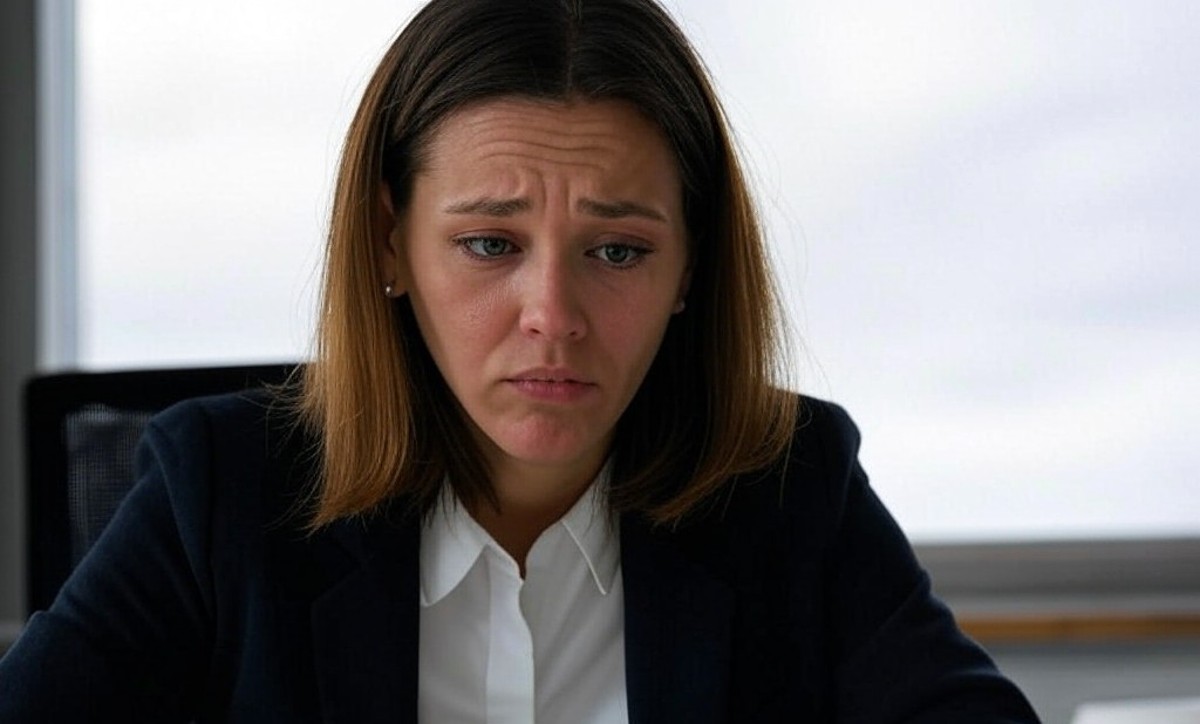 Dear readers, Catholic Online was de-platformed by Shopify for our pro-life beliefs. They shut down our Catholic Online, Catholic Online School, Prayer Candles, and Catholic Online Learning Resources—essential faith tools serving over 1.4 million students and millions of families worldwide. Our founders, now in their 70's, just gave their entire life savings to protect this mission. But fewer than 2% of readers donate. If everyone gave just $5, the cost of a coffee, we could rebuild stronger and keep Catholic education free for all. Stand with us in faith. Thank you. Help Now >
Dear readers, Catholic Online was de-platformed by Shopify for our pro-life beliefs. They shut down our Catholic Online, Catholic Online School, Prayer Candles, and Catholic Online Learning Resources—essential faith tools serving over 1.4 million students and millions of families worldwide. Our founders, now in their 70's, just gave their entire life savings to protect this mission. But fewer than 2% of readers donate. If everyone gave just $5, the cost of a coffee, we could rebuild stronger and keep Catholic education free for all. Stand with us in faith. Thank you. Help Now >
Helping kids handle divorce
FREE Catholic Classes
(Catholic Digest) - Parents have more influence than they might think in helping their children adjust to family life after divorce. Here's some advice for soothing pains and healing hearts.
Highlights
Catholic Digest (www.catholicdigest.org/)
9/5/2006 (1 decade ago)
Published in Marriage & Family
The greatest challenge is to maintain a close relationship with children during the splitting up of the marriage and beyond. The more both parents nurture an emotionally healthy environment, the more likely those children will adjust in healthy ways. Children grieve about divorce differently than their parents do. First, for children there is no finality. The marriage may be over for the adults, but the child-parent relationship still exists. Second, since children are still maturing, the various stages of their development bring new grief experiences relating to the divorce. While the grief of adults has a beginning, middle, and end, the grief of children has a series of beginnings, middles and ends. Parents need to do more than accept these differences. They must enter into the world of young people and treat their feelings and difficulties with respect. Parents need to offer support that will help young people find their own way to solutions. This means treating their difficulties as opportunities to strengthen their relationships with God and helping them solve their own problems. Allow young people to express their feelings Enabling children to express their feelings helps them talk out rather than act out their difficulties. It also serves as an essential step in healing. Help them take this step by allowing them to express the bad feelings that your divorce is causing them. Do not silence, criticize or reprimand. When we deny our children's pain, we send a message that certain feelings are bad. Minimizing pain encourages repression of grief, which leads to larger problems. Don't stifle or deny youthful sorrow by saying: "I know how you feel" or "you should be stronger than this." Instead, encourage children to express their feelings. Tell them: "I'm sure this is very difficult for you"; "I wish I could take the pain away"; or simply "What can I do to help?" Show how to take responsibility for feelings Children take their cues largely from you. If they see you make excuses for yourself, blame others for your difficulties, or give up on improving your life, they may copy this behavior. Similarly, if they see you take your anger out on others, they may do the same. Show them how to take responsibility for negative feelings. Reinforce positive attitudes. Do not let them off the hook for their need to improve their situation. Expect them to do their best and show an optimistic attitude. Respect your children's relationship with their other parent. Though marriages end, children have relationships with both parents. Even if you have reason to believe the other parent will let your children down, don't interfere with their relationship. Children have to learn skills for handling people with shortcomings. This experience will help them learn to put forgiveness into practice. Don't speak badly about the other parent When you speak badly about the other parent, you undermine your children because they feel that part of that parent is in them. This can cause them to feel even worse about themselves and pressure them to take sides. They may feel guilty for wanting a relationship with the other parent. Bad mouthing hurts the child's relationship with the other parent when they need understanding and forgiveness toward him or her. It may even lead them to intensify their anger toward one or both of you. Don't give unnecessary details Children deserve explanations that are appropriate for their age. Inappropriate information, like adultery or spouse abuse, overburdens young people. Learning such details can also damage the relationship with one or the other parent at the time when they most need to be working toward reconciliation. Discuss other family members' reactions or another family's divorce Young people often express their grief indirectly by talking about the grief of someone else. If this happens, you can try to refocus the conversation on them: "It sounds like you know how Mark feels. Have you felt that way too?" Reading a book or watching a movie about divorce together may also encourage this give-and-take. Schedule regular family time The breakdown of a marriage has a ripple effect, often propelling all family members in separate directions. To emphasize that your family is still a family, schedule a specific day and time each week to be together. Spend time doing something everyone enjoys. Place your children in support groups Young people want to fit into their peer group. If they perceive that the separation or divorce makes them different from their friends, they may withdraw or repress their true feelings. Spending time with other young people from divorced families offers a community of support. These friendships also give them a safe place to reveal feelings. Attend Mass and church events with your children Young people must rely on the strength and direction of God to heal fully. Participating in religious practices and gatherings nurtures their spirituality and reminds them that God is there to help them. Don't become lax with discipline or try to win over your children with gifts It's easy to let guilt or fear of losing your children to the other parent persuade you to become lax with enforcing rules or to overindulge them with gifts. Not only does discipline help children learn responsibility and what is appropriate behavior, it also reassures them that you really care. Equally important, it provides a sense of stability, which is especially vital. Allow children to grieve at their own rate We cannot hurry young people through the grieving process. They must move through it at their own pace. This could be much slower than we would like or expect, because their grief is intertwined with their ongoing personal development. If your children refuse to talk about the separation or the divorce, honor their wishes. They may be defending themselves against emotions that seem overwhelming. They may also be searching for a way to let these feelings out while protecting themselves at the same time. Keep your kids busy Encourage your children to express their anger in non-hurtful ways. Persuade them to exercise, write poetry, play an instrument, draw, or do art projects that they enjoy. - - - Reprinted in the December 2005 issue of Catholic Digest from When Parents Divorce: How to Comfort Teens and Young Adults with permission from Liguori Publications.
---
Republished by Catholic Online with permission of Catholic Digest (www.catholicdigest.org), a Catholic Online Preferred Publishing Partner.
Join the Movement
When you sign up below, you don't just join an email list - you're joining an entire movement for Free world class Catholic education.
-

-
Mysteries of the Rosary
-
St. Faustina Kowalska
-
Litany of the Blessed Virgin Mary
-
Saint of the Day for Wednesday, Oct 4th, 2023
-
Popular Saints
-
St. Francis of Assisi
-
Bible
-
Female / Women Saints
-
7 Morning Prayers you need to get your day started with God
-
Litany of the Blessed Virgin Mary
Introducing "Journey with the Messiah" - A Revolutionary Way to Experience the Bible
-

Catholic Response to Devastating Los Angeles Wildfires
-

Federal Court Blocks Biden Administration's Gender Identity Rule
-
A Future for Life: Introducing the Winners of the Priests for Life Pro-Life Essay Contest
-
Reflections on Pope Francis' 2025 World Day of Peace message
Daily Catholic
 Daily Readings for Saturday, January 11, 2025
Daily Readings for Saturday, January 11, 2025 St. Theodosius the Cenobiarch: Saint of the Day for Saturday, January 11, 2025
St. Theodosius the Cenobiarch: Saint of the Day for Saturday, January 11, 2025 Prayer for a Blessing on the New Year: Prayer of the Day for Tuesday, December 31, 2024
Prayer for a Blessing on the New Year: Prayer of the Day for Tuesday, December 31, 2024- Daily Readings for Friday, January 10, 2025
- St. William of Bourges: Saint of the Day for Friday, January 10, 2025
- St. Theresa of the Child Jesus: Prayer of the Day for Monday, December 30, 2024
![]()
Copyright 2024 Catholic Online. All materials contained on this site, whether written, audible or visual are the exclusive property of Catholic Online and are protected under U.S. and International copyright laws, © Copyright 2024 Catholic Online. Any unauthorized use, without prior written consent of Catholic Online is strictly forbidden and prohibited.
Catholic Online is a Project of Your Catholic Voice Foundation, a Not-for-Profit Corporation. Your Catholic Voice Foundation has been granted a recognition of tax exemption under Section 501(c)(3) of the Internal Revenue Code. Federal Tax Identification Number: 81-0596847. Your gift is tax-deductible as allowed by law.






 Daily Readings for Saturday, January 11, 2025
Daily Readings for Saturday, January 11, 2025 St. Theodosius the Cenobiarch: Saint of the Day for Saturday, January 11, 2025
St. Theodosius the Cenobiarch: Saint of the Day for Saturday, January 11, 2025 Prayer for a Blessing on the New Year: Prayer of the Day for Tuesday, December 31, 2024
Prayer for a Blessing on the New Year: Prayer of the Day for Tuesday, December 31, 2024

